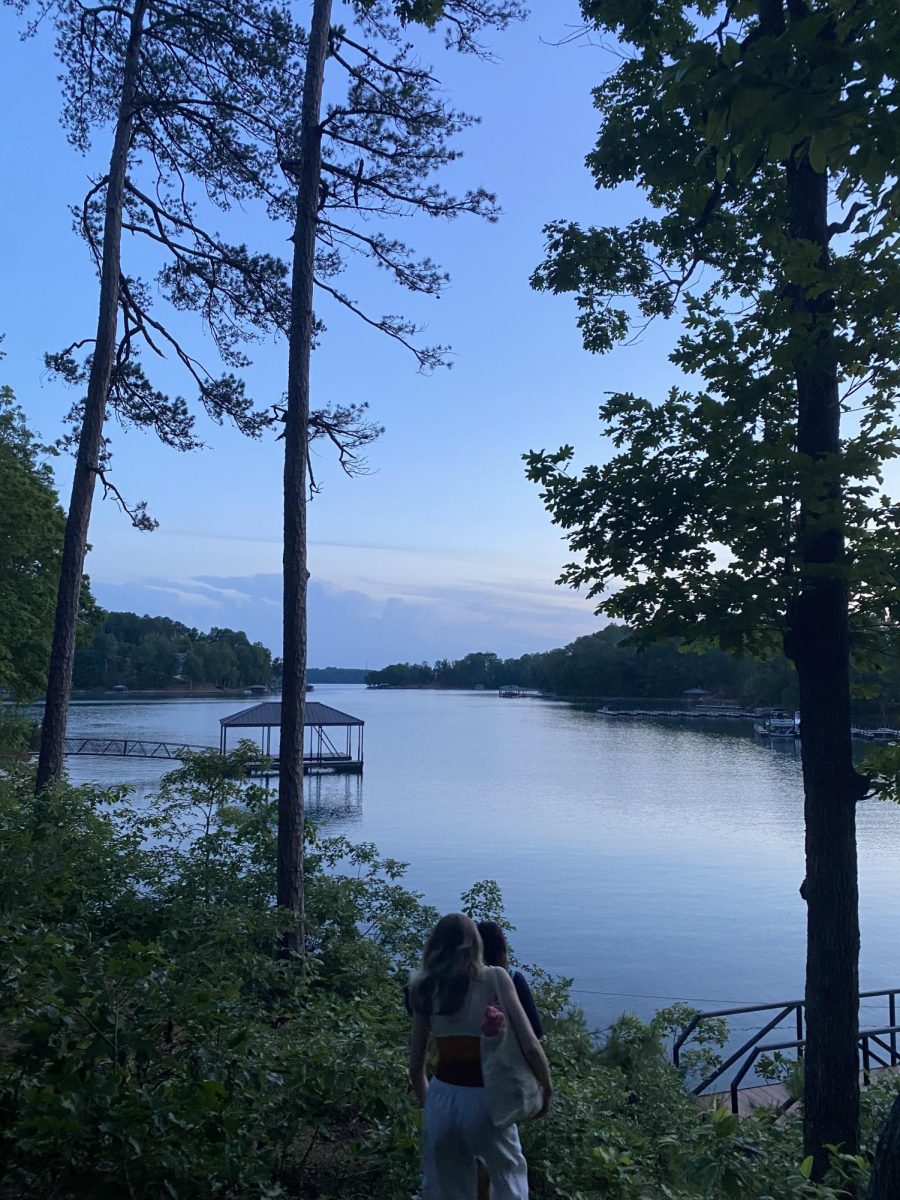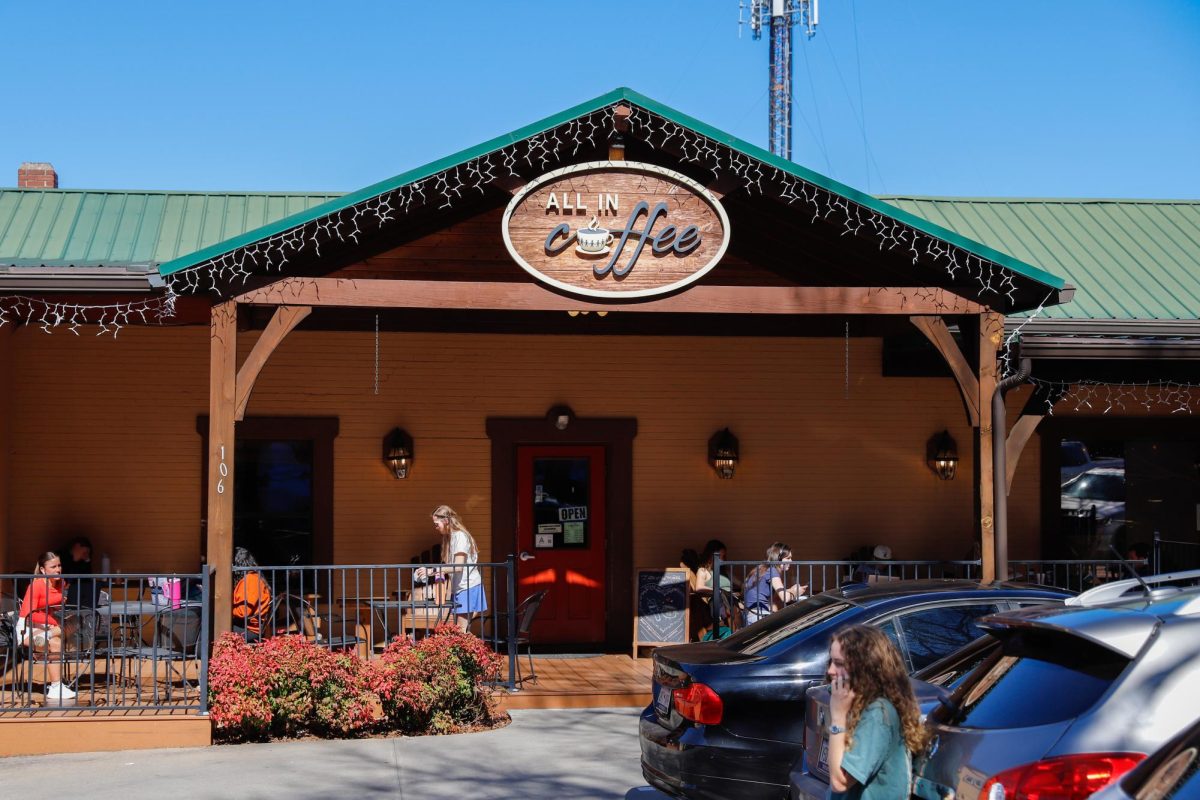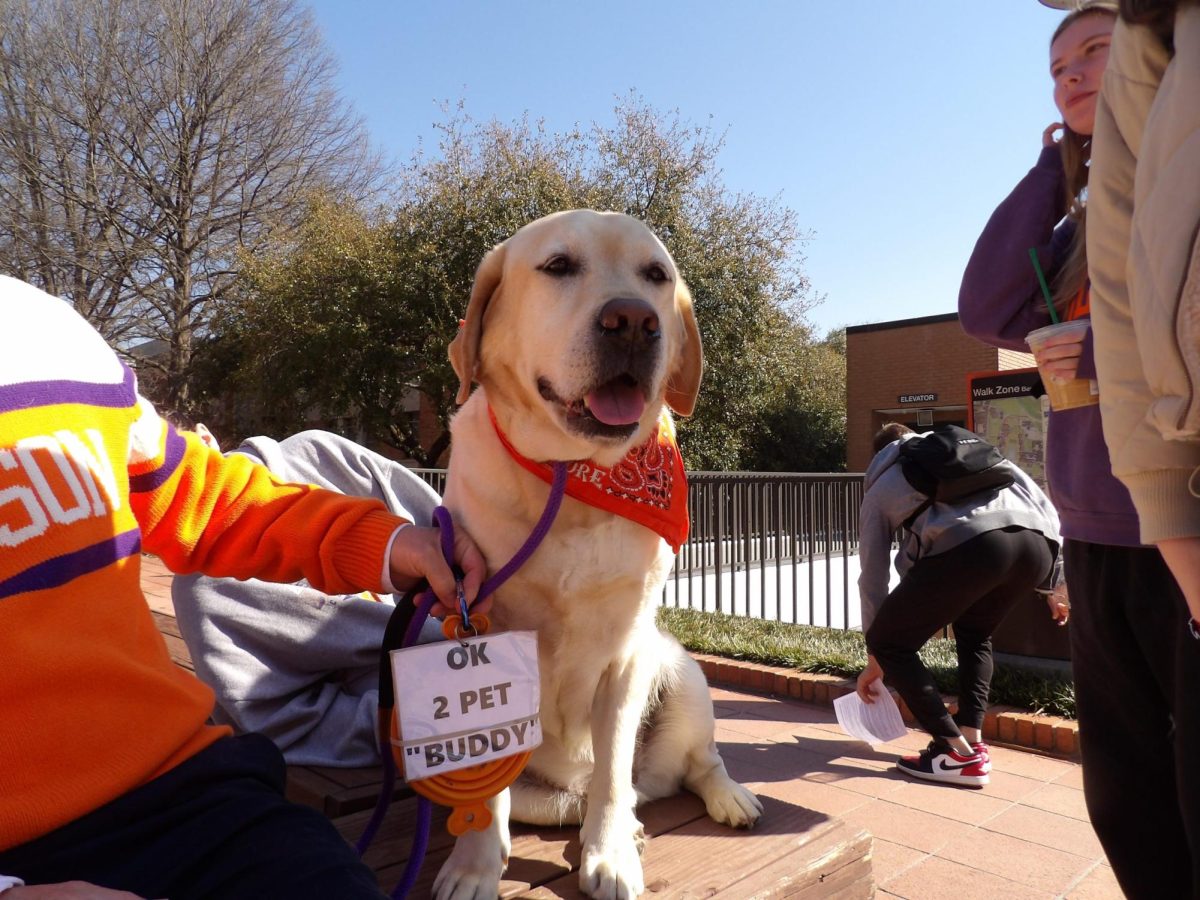In January, Donald J. Trump will become the next president of the United States. At Clemson, the close race was watched in apartments and houses alongside roommates, friends and family.
Sophomore Victoria Snow watched the election from her home on Tuesday.
“I was at home—my dad and I had gone and voted that morning. And so we turned it on, and ate dinner, we watched it for a little while but eventually—he had to go to work the next morning…my sister was leaving for a band competition at like 5AM. I then I saw map started turning red,” said Snow, “I was like this is not good.”
It was Snow’s first time voting. She said that she was proud that she rooted for Clinton and that she convinced all her roommates to vote as well.
“[I told my roommates], ‘if you don’t want this to be a reality—vote. Because honestly its dangerous for a lot of us,” said Snow.
Polling statistics indicated to people like Snow that Clinton’s victory was likely, if not assured. By 8:30 p.m. on Tuesday, however, exit polls did not indicate the Clinton lock-up of Florida that statisticians predicted. Instead, battleground states and even Northwestern ‘firewall’ states fell into dead-heats.
Quickly, polling models like 538 adjusted their outlooks, shifting Clinton’s chances of securing the presidency from above 60 percent to below 30 percent. Through the night, the news for Trump supporters continued to be favorable.
“And then on the election night, I just kept expecting to see the turn around and it just never happened and I was like—oh,” said Snow.
Junior Alex Cullen said that he wasn’t shocked by the turnout. Cullen watched the election in his apartment alongside fellow members of YAL (Young Americans for Liberty.)
“It was definitely more of a Trump/Gary room than anyone for Clinton. It got pretty exciting when Trump started winning. If had to make a statistical bet I also would have voted Hillary,” said Cullen.
In the wake of the upset, statisticians evaluating their polling error pointed to blue collar white Americans, who voted for Obama in 2008 and 2012, switching political sides for a Trump ticket. These historically Democratic voters opted for Trump, but largely avoided answering polls, according to 538.com’s review of the polling. Cullen, however, was not surprised.
“I did have a gut feeling that there was a disparity there—I mean you saw it everywhere,” said Cullen, “People being asked who they were voting for and then lying because they didn’t want to say Donald Trump.”
Cullen himself had been rooting for Libertarian Candidate Gary Johnson. His hope was that Johnson would reach the 5% needed to obtain federal funding. Johnson fell short at 3.2%.
Cullen said that he knew what turn the election was going to take once Florida turned red. Either way, Cullen said he wasn’t going to be pleased with the results.
“There has definitely been a dichotomy. I sort of had the belief that the candidate options were like a lose-lose situation.”
Cullen said he didn’t notice much of a change on Clemson’s campus the day after the election except that it was a bit quieter.
Across campus, that silence engulfed Senior Sean Galgano’s watch party. Galgano said that all he and his roommates could feel after the election was “hopeless.”
“I was watching it in my roommate’s room, and the atmosphere was definitely very concerned, a lot of disbelief. And one of my roommates—he’s
from Lebanon and was worried what was going to happen to his family now that Trump is elected.”
Trump’s campaign promises to secure borders, deport illegal immigrants and heighten vetting for immigrants from majority Muslim nations can all be found on his campaign website.
“Another one of my roommates has Crohn’s Disease and he’s worried that if Trump does repeal Obamacare, he’s not going to be able to stay on his parent’s medical insurance,” said Galgano, “So there was a definite dread.”
Galgano said that he doesn’t think the election results will effect political participation on campus. He said that the day after the election, the only difference was visible Trump paraphernalia.
“I don’t think there will be any change on campus. I feel like there are a lot of students who don’t really want to put the effort in where they feel like they can’t change anything, where the situation is kind of hopeless,” said Galgano, “Myself included.”
Snow says she shares a similar disbelief, but her reaction to a Trump presidency is to “keep fighting.”
“Personally as a women, and as a queer woman, I’m scared how this will
effect us. I’m afraid at what’s going to happen, but there was so much support from the community,” said Snow, “I feel like people will keep fighting.”
Other students, like Sophomore Chloe Hourigan are optimistic about a Trump presidency. Hourigan is a Trump supporter.
“I want to say yes that I’m optimistic I’m hoping that I can, but I think it’s very split. I think people are very caught up in the fact that it is Donald Trump. I think people are so focused on attacking him on social media, that they are referencing jokes and memes over his actual policies,” said Hourigan.
Previously reluctant establishment Republicans, like Paul Ryan, have met with President Elect Trump on Capitol Hill to focus on the “unified Republican party,” said Ryan, according to CNN.
Hourigan sees a similar need to come together.
“I hope that some people who weren’t supporting him will be able to stand behind him in the upcoming months and accept that he is our president.”







